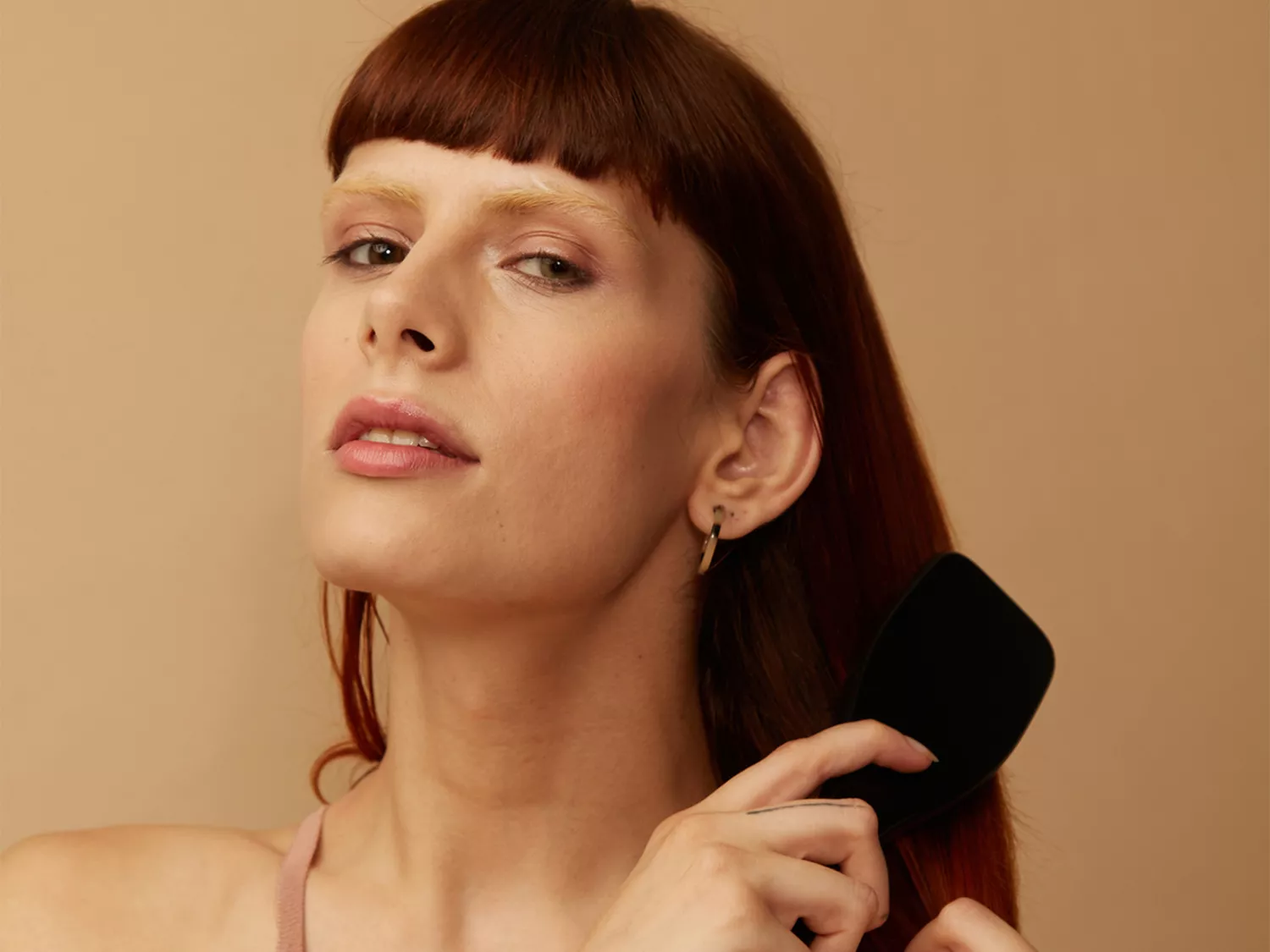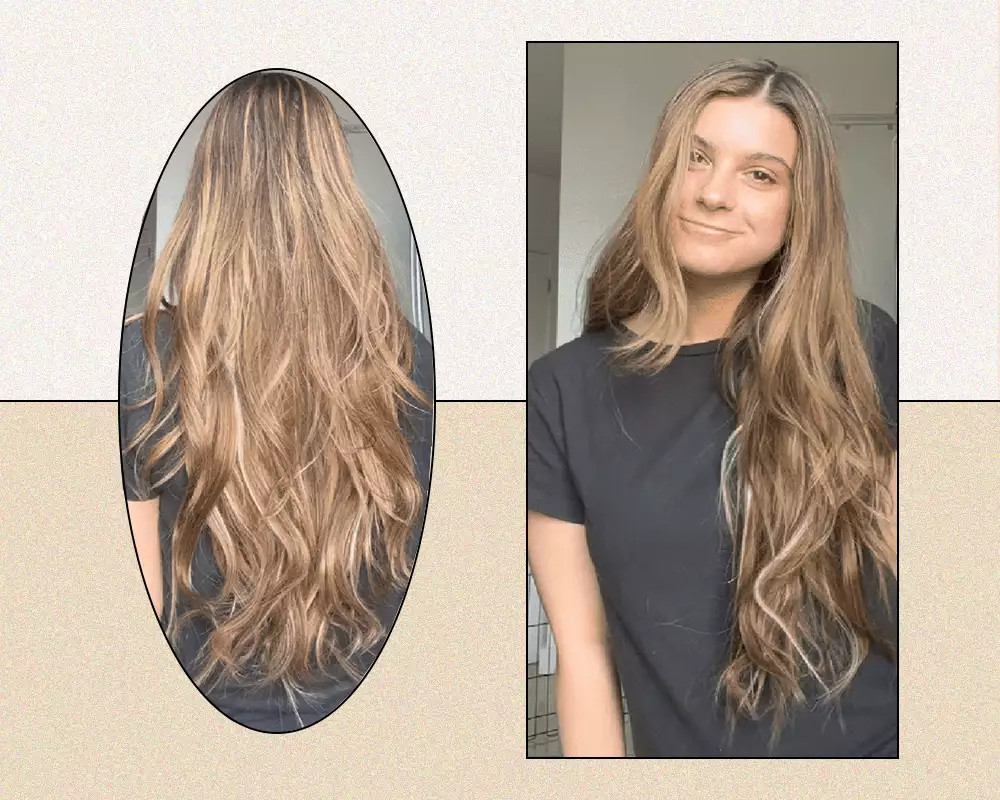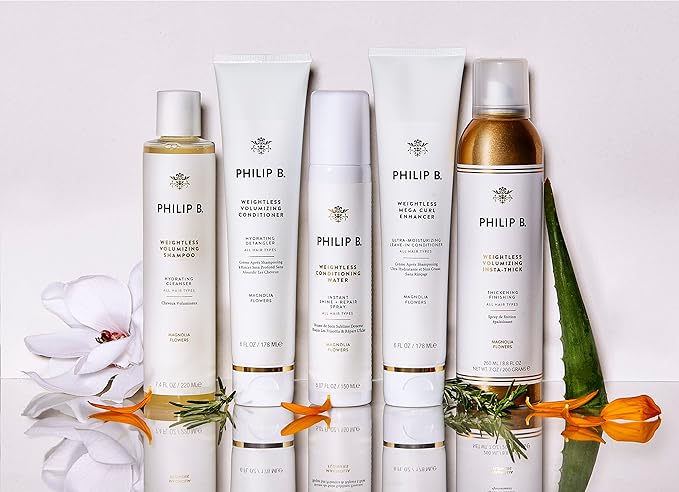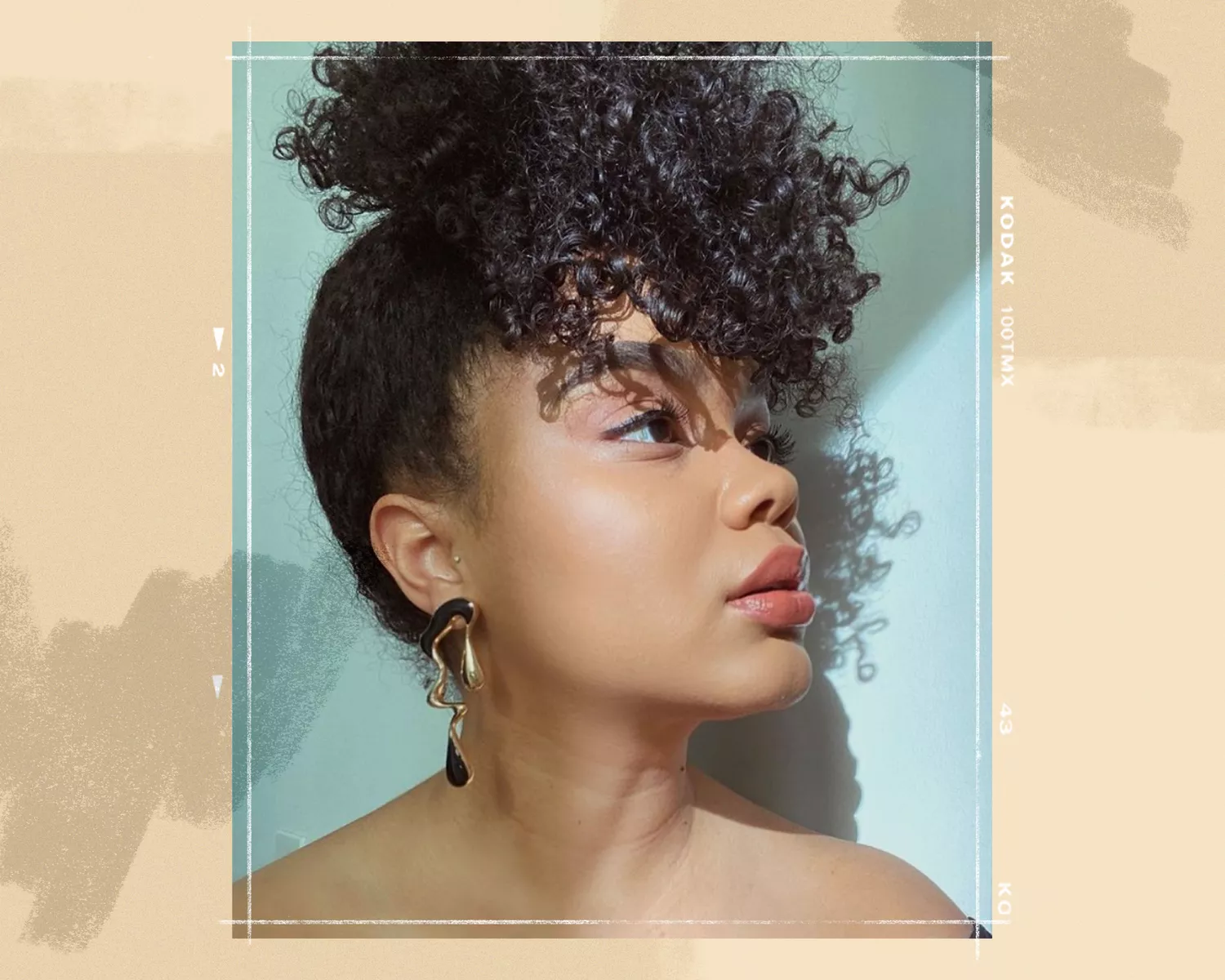
Stocksy
Drinking plenty of water is essential to your overall health and the appearance of your hair, skin, and nails. The water that ends up on your hair through showering and washing is as important as the water you drink. While drinking water has long-term impacts on hair growth and health, the effects of the water we wash our hair with can be seen almost immediately.
You may have observed changes to your hairs appearance and texture when traveling, and this is due to the different compositions of the water found across the globe. While the observable effects of certain water may vary from person to person, hard water has gained notorious recognition for its negative ramifications on hair.
So whats so bad about hard water? And what makes it "hard" in the first place? We turned to two board-certified dermatologists to help demystify this vilified water source. Keep reading to hear their explanation of hard water and how to protect your hair against it.
Is Hard Water Bad for Hair?
To understand the impact hard water can have on hair, its important first to learn what makes water "hard." The hardness of water is determined by the amount of calcium carbonate and magnesium sulfate found in the water.1Hardness in water is often believed to cause dry, brittle hair amongst its users and has also been implicated in preventing soap from lathering properly. Its also important to note that there are two types of hardness: temporary and permanent. Temporary hardness salts (bicarbonate salts) can be removed by boiling the water before use, but permanent hardness salts (sulfate salts) cannot be removed by boiling.
So how does hard water affect hair? According to Marcus, washing hair with hard water leads to the deposition of excessive minerals on the scalp and hair strands. This build-up of mineral content, which Garshick says is primarily magnesium and calcium, can have several adverse outcomes for the appearance and health of your hair, including:
Blocks moisture:he build-up of minerals like magnesium and calcium caused by using hard water can block moisture absorption, says Marcus. Over time, this blocking of moisture can profoundly affect the health and appearance of the hair, as moisture is essential to elasticity and shine.Prevents effective cleansing:The minerals found in hard water can make it difficult to form a lather which can then prevent effective cleansing of hair and scalp, explains Garshick. This is likely the cause of the "filmy" feeling of hard water users report after washing their hair. Research shows that cleansing with hard water makes bar cleansers ineffective as it promotes soap scum that is difficult to rinse from the hair and scalp.2Weighs the hair down:Many hard water users report their hair feeling weighed down, which Marcus says can result from the mineral deposits left behind. This is likely compounded by the previously mentioned cleansing issues with hard water, as repeated poor cleansings would result in a build-up of oil and minerals.Causes frizz and dullness:Marcus explains that blocking moisture and weighing the hair down can cause hair to appear dry, dull, frizzy, and unmanageable over time.Promotes split ends and breakage:
Minerals deposited on hair strands block moisture absorption and lead to dryness, which can eventually lead to breakage of hair strands" explains Marcus. "Dry hair strands are more prone to breakage, including split ends," Marcus adds.
Makes the scalp itchy:The combination of dryness and poor cleansing caused by hard water can lead to serious scratching of your scalp. "Hard water mineral deposition on the scalp can also cause a dry, itchy scalp," explains Marcus. "They can even irritate the scalp and cause itching and flaking," she adds.Interferes with hair color:If you color your hair, you want to do everything possible to make that color last between salon visits. Garshick warns that hard water can also impact color-treated hair, interfering with hair color and causing the color to fade quicker.
Can Hard Water Lead to Hair Loss?
With all the potential for issues when using hard water, its easy to see why fears about it causing hair loss would arise. Despite the laundry list of complaints caused by hard water, neither expert cited it as a direct cause of hair loss. While it may contribute to issues that increase the likelihood of hair loss, no direct link has been found.
"While some people may notice changes in their hair when exposed to hard water, it is not a clear cause of hair loss. In one study, the hardness of water was not found to interfere with the tensile strength or elasticity of the hair. That said, because hard water may make it harder for moisture to penetrate the hair, hard water may leave it more susceptible to dryness and breakage," explains Garshick.
What to Do About Hard Water
Understanding the potential risks of washing your hair with hard water, some may want to seek a solution for their hair or even their overall shower, as hard water can also affect the skin. You can take several approaches to combat hard water, including upgrading your cleansing products and investing in a specialized shower head.
Upgrade Your Shower
The most effective way to prevent hard water buildup is to avoid hard water, explains Marcus. She recommends installing a filter in your shower head, such as the AquaBliss HD Multi-Stage Shower Filter ($80). Garshick agrees that hard water build-up prevention starts at the source, so using products such as a water softener or a shower filter may help soften the water.
Use a Clarifying Shampoo
If shower filters or water softeners are not for you, Marcus says the next best option is to use a chelating or clarifying shampoo once or twice weekly. Both experts agree that clarifying shampoos are beneficial for removing hard water buildup and provided the following recommendations:
Ouai Detox Shampoo ($32): Marcus says it contains chelating ingredients to remove mineral buildup from the hair, including apple cider vinegar to remove residue and hydrolyzed keratin to enhance shine and tame frizz. Malibu C Hard Water Wellness Shampoo ($17): Designed specifically for hard water, Marcus recommends this sulfate-free shampoo, which contains clarifying ingredients that remove mineral buildup and antioxidants, and hydrators help to protect and nourish strands. Oribe The Cleanse Clarifying Shampoo ($49): Garshick says this shampoo " increases shine while helping to purify and deeply cleanse the scalp without stripping away natural oils or leaving the scalp feeling dry or irritated." She adds that it can be used for all hair types or textures. Vegamour GRO Scalp Detoxifying Serum ($42) - This scalp treatment can be applied to the scalp before showering and may help decrease the buildup once per week, explains Garshick. "This uses a silk protein that helps to eliminate scalp buildup and helps to soothe scalp damage. It also contains zinc PCA to absorb excess oils and reduces scalp irritation. It can be used weekly."
Cleanse with Apple Cider Vinegar and Other Chelating Agents
Marcus explains that chelating agents such as apple cider vinegar and EDTA can help remove minerals and product buildup from hair. "Vitamin C is also an excellent mineral-removing ingredient to look for," according to Marcus. Whether its apple cider vinegar or Vitamin C, chelating agents cleanse the hair thoroughly, so some may find them stripping.
Nourish with a Deep Conditioning Mask
If your hair has become dry and brittle due to the hard water deposits, consider using a deep conditioning mask following your clarifying treatment. "To help repair any hair damage, it can help to use a deep conditioning mask or oils to help nourish the hairs," explains Garshick. She recommends the Andalou Naturals 1000 Roses Complex Color Care Deep Conditioning Hair Mask ($4). "This deep conditioning hair mask is perfect for those with dry or damaged hair, which may occur due to hard water exposure, as this mask contains alpine rose stem cells and a bioactive berry complex to strengthen and soften the hair," explains Garshick.
The Takeaway
Hard water is caused by strong concentrations of minerals like magnesium and calcium. Hard water is found in various locations throughout the globe and, therefore, can be difficult to avoid altogether. Our experts recommend investing in a water softener or shower filter to reduce the mineral deposits in the water and properly cleansing the hair to prevent build-up.
Dermatologists Say Hard Water May Damage Your Hair—Heres How to Stop It
Article Sources
We takes every opportunity to use high-quality sources, including peer-reviewed studies, to support the facts within our articles. Read our editorial guidelines to learn more about how we keep our content accurate, reliable and trustworthy.
Srinivasan G, Srinivas CR, Mathew AC, Duraiswami D. Effects of hard water on hair. International Journal of Trichology. 2013;5(3):137.
Draelos ZD. Essentials of hair care often neglected: hair cleansing. Int J Trichology. 2010;2(1):24-29.








